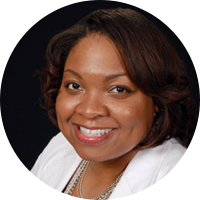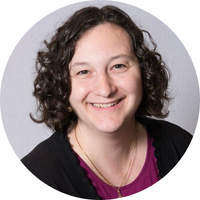
"Forming a resume in a mid-to-late career is more about what you’ve done, who you are, and ... where you want to go."
Resumes in early career are about proving what you can do and how the company can benefit from your unique skillset as a person since you haven’t yet established yourself in the field. Early in your career, if you don’t have too many projects related to the position you are interested in pursuing following, relevant internships, etc., you must be creative in how you position your life experience as it relates to that desired role.
Forming a resume in a mid-to-late career is more about what you’ve done, who you are, and how that relates to where you want to go. As a person in a mid-to-late career, it would take a lot more effort to pivot into a completely different field than if you were looking to stay within your given area of expertise.
Regardless of whether someone is in an early or mid-to-late career, the interviewer is always interested in what you can do for them; what value you bring to the company that other applicants lack.

"When I consult with students... I encourage them to play the odds..."
Being mid or late-career affords you more opportunities to take risks in resume formatting. Step out from the standard rubric to highlight your individuality! By now, you should have a better idea of what you like, what you don't like, what you want from a job, and how your values influence your working style. You know the rules, so channel your inner Picasso and break them!
By taking this approach, you may receive a lower response rate, but that's a blessing in disguise. You immediately weed out companies and hiring managers that don't match your wants/needs/expectations (dare I say quirks?), and you don't waste your time on interviews that aren't going anywhere.
When I consult with students looking for their first entry-level job, I encourage them to play the odds and create an agreeable resume with a maximum chance of getting them into an interview. There's no such thing as too much practice at that career stage. But experienced professionals can use their resumes to select employers just as much as employers use them to select new hires.

“It never hurts to keep a CV with all your accomplishments...”
For this reason, my best advice on resumes is to have several people take a look at it and give you feedback. Applicants will likely want to pick the most common feedback to follow. Since more experienced applicants may have more to include on a resume, they may choose to leave summer jobs out when they are in school or as many extracurricular activities with leadership roles. However, they may still be relevant depending on the role and experience. It never hurts to keep a CV with all of your accomplishments, activities, and roles that you can pull from to make the right resume for the job you are applying for.

"It’s important for mid-to-late career individuals to highlight their scientific publications..."
In mid-to-late career resumes one is marketing what one has accomplished: publications, patents, successful proposals, etc., while on an early career resume, one is marketing your potential: your education, your dissertation/thesis, your contributions to larger projects, instrument experience, etc.
Generally, on more senior staff resumes one’s education is at the end of the document as compared with at the top for early career individuals. It’s important for mid-to-late career individuals to highlight their scientific publications, mainly first and second-author documents, and their ability to bring in research funding for their area of expertise.
This article has been edited for length and clarity. The opinions expressed in this article are the author's own and do not necessarily reflect the view of their employer or the American Chemical Society.
ACS Career Consultants are experts and leaders working in the field of chemistry who have volunteered to support other ACS members’ career development through one-on-one career counselling. They can stimulate your thinking, ask important career planning questions to help clarify goals, provide encouragement, teach strategies for making meaningful career decisions, and aid you in your job search. Connect with an ACS Career Consultant today!









